Steps
This is the tool I use to view data in the EMQ server, MQTTX, which is quite handy.
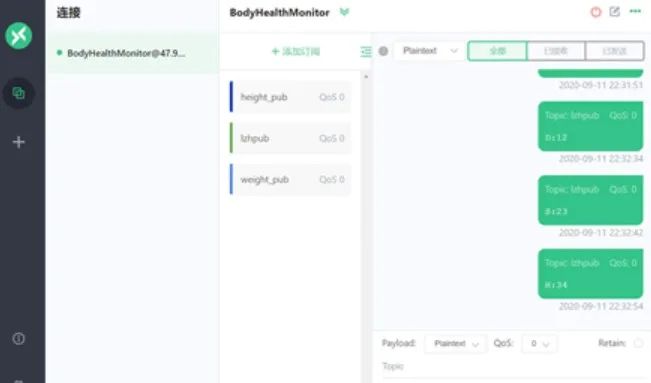
First, we need these libraries. It’s quite simple to download them, just search for installation on Baidu, and after installation, import them.

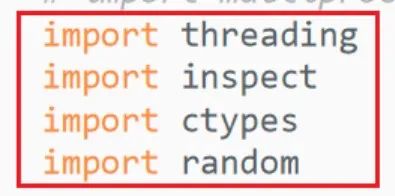
Taking the topic “weight_pub” as an example, we first retrieve MQTT data. The function API usage example is as follows:

##MQTT operation
def MQTTWeight(): # config._init() client_weight = mqtt.Client() client_weight.on_connect = on_connect_weight client_weight.on_message = on_message_weight client_weight.connect('**.**.***.***',****, 600) # 600 is the keepalive interval client_weight.subscribe('weight_pub', qos=0)This function indicates that we have successfully connected to the EMQ server on the weight_pub topic and will echo back to the user to confirm the successful connection.

def on_connect_weight(client, userdata, flags, rc):Next, we handle the data we receive in the on_message_weight(client, userdata, msg) function.

def on_message_weight(client, userdata, msg): var = str(msg.payload) if(get_value('WriteEnable') == 1): set_value('weight',(GetWeight(var))) if(get_value('weight') > 10): total_data['weight'] -= 2.75At this point, data retrieval is complete. Next, we will perform database record modification. I have already created the records in the database, so we just need to modify the corresponding records. Python will find the relevant record through id.
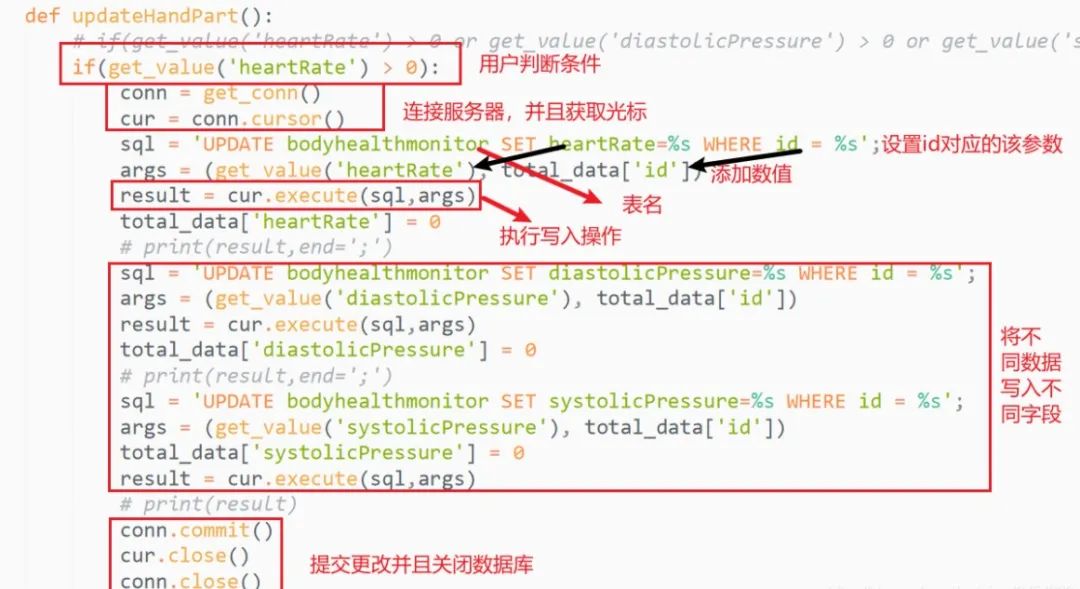
##Database operation
def updateHandPart(): if(get_value('heartRate') > 0): conn = get_conn() cur = conn.cursor() sql = 'UPDATE bodyhealthmonitor SET heartRate=%s WHERE id = %s'; args = (get_value('heartRate'), total_data['id']) result = cur.execute(sql,args) total_data['heartRate'] = 0 # print(result,end=';') sql = 'UPDATE bodyhealthmonitor SET diastolicPressure=%s WHERE id = %s'; args = (get_value('diastolicPressure'), total_data['id']) result = cur.execute(sql,args) total_data['diastolicPressure'] = 0 # print(result,end=';') sql = 'UPDATE bodyhealthmonitor SET systolicPressure=%s WHERE id = %s'; args = (get_value('systolicPressure'), total_data['id']) total_data['systolicPressure'] = 0 result = cur.execute(sql,args) # print(result) conn.commit() cur.close()This function is to connect to the database.

def get_conn(): conn = pymysql.connect(host='*****', port=*****, user='*****', passwd='*****', db='*****') return connFinally, in our main function, we open a thread to retrieve data and then process it.
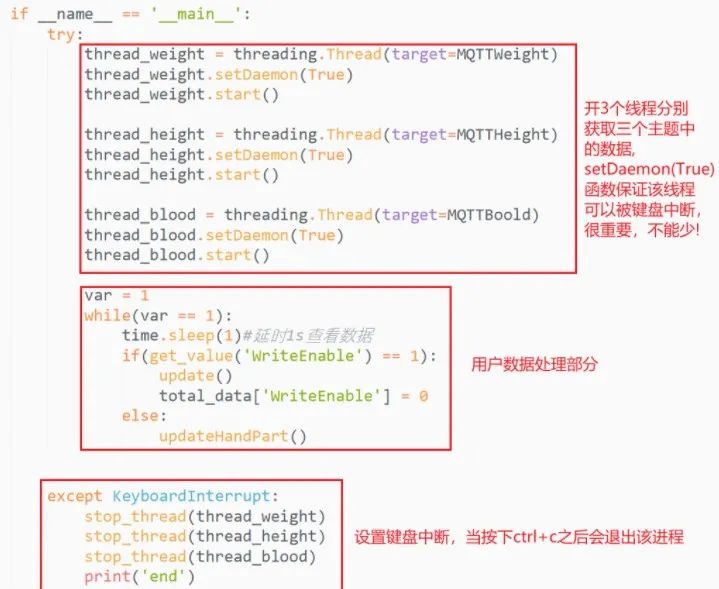
#***** represents the user's own data
total_data = {'WriteEnable':0, 'weight': 0.00, 'diastolicPressure': 0, 'heartRate': 0, 'systolicPressure':0, 'height':0.00, 'bloodOxygen':0.00, 'BMI':0.00, 'idealWeight':0.00, 'temperature':0.00,'id':1000}
def set_value(name, value): total_data[name] = value
def get_value(name, defValue=None): try: return total_data[name] except KeyError: return defValue
#Retrieve weight
def GetWeight(str): var = '' cnt = 0 for char in str: cnt = cnt + 1 if char >= '0' and char <= '9' or char == '.': var += char return float(var)
def on_connect_weight(client, userdata, flags, rc): print("Connected with weight result code: " + str(rc))
def on_message_weight(client, userdata, msg): var = str(msg.payload) if(get_value('WriteEnable') == 1): set_value('weight',(GetWeight(var))) if(get_value('weight') > 10): total_data['weight'] -= 2.75 # print ( 'wei :%.2f' % total_data['weight'] ,end=':') ##MQTT operation
def MQTTWeight(): # config._init() client_weight = mqtt.Client() client_weight.on_connect = on_connect_weight client_weight.on_message = on_message_weight client_weight.connect('**.**.***.***',****, 600) # 600 is the keepalive interval client_weight.subscribe('weight_pub', qos=0) client_weight.loop_forever() # Keep connection
def get_conn(): conn = pymysql.connect(host='*****', port=*****, user='*****', passwd='*****', db='*****') return conn
##Database operation
def updateHandPart(): if(get_value('heartRate') > 0): conn = get_conn() cur = conn.cursor() sql = 'UPDATE bodyhealthmonitor SET heartRate=%s WHERE id = %s'; args = (get_value('heartRate'), total_data['id']) result = cur.execute(sql,args) total_data['heartRate'] = 0 # print(result,end=';') sql = 'UPDATE bodyhealthmonitor SET diastolicPressure=%s WHERE id = %s'; args = (get_value('diastolicPressure'), total_data['id']) result = cur.execute(sql,args) total_data['diastolicPressure'] = 0 # print(result,end=';') sql = 'UPDATE bodyhealthmonitor SET systolicPressure=%s WHERE id = %s'; args = (get_value('systolicPressure'), total_data['id']) total_data['systolicPressure'] = 0 result = cur.execute(sql,args) # print(result) conn.commit() cur.close() conn.close()
if __name__ == '__main__': try: thread_weight = threading.Thread(target=MQTTWeight) thread_weight.setDaemon(True) thread_weight.start()
thread_height = threading.Thread(target=MQTTHeight) thread_height.setDaemon(True) thread_height.start()
thread_blood = threading.Thread(target=MQTTBoold) thread_blood.setDaemon(True) thread_blood.start()
var = 1 while(var == 1): time.sleep(1)#Delay 1s to check data if(get_value('WriteEnable') == 1): update() total_data['WriteEnable'] = 0 else: updateHandPart()
except KeyboardInterrupt: stop_thread(thread_weight) stop_thread(thread_height) stop_thread(thread_blood) print('end')(づ ̄3 ̄)づ╭❤~One click three connections, this time for sure (๑•̀ㅂ•́)و✧

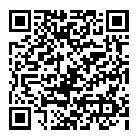
(Scan the QR code for course details)